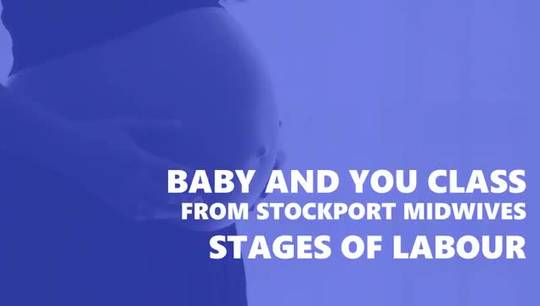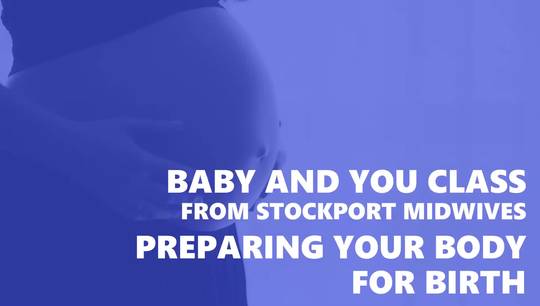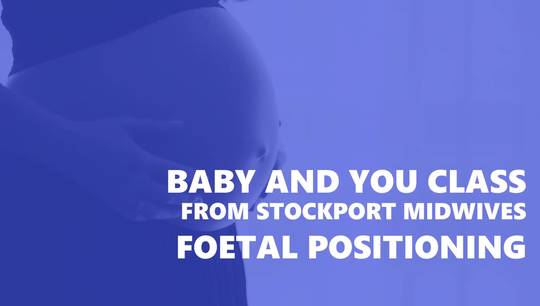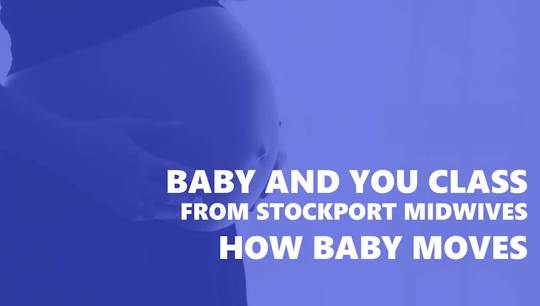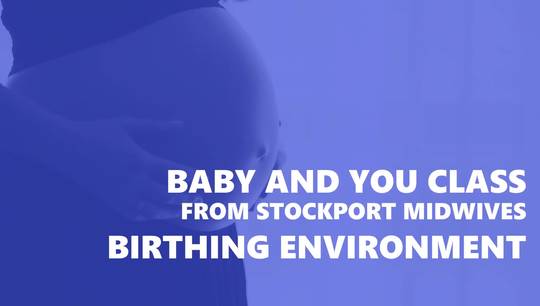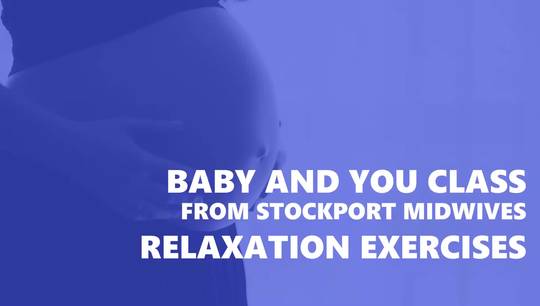Baby and You
Baby and You - Session 1 - Introduction
2,699 views
Introduction
Transcript:
Kim: Hi! Welcome to our Baby and You class. We want to provide you with lots of information about birth and early parenthood and of course the importance of the bond between a parent and their baby. We usually do this in a group situation but of course we’re thinking outside of the box and that’s why we’re doing this YouTube video for you.
Kim: My name is Kim. I’m one of the Community Midwives in Stockport and I have been a midwife for almost 10 years.
Sam: My name is Sam and I’m a Community Midwife in Stockport. Kim and I work on the same team and I have been a midwife for nearly 2 years.
Kim: Just make sure that for this video you are sitting really comfortably, particularly for the relaxation we’ll be doing at the end. Make sure you have a pen and paper as I’m sure you will want to note down bits of information as we go along. You might have seen questions that relate to this video. Questions that relate to the baby in the uterus. Sam is just going to run through the answers to those questions with you now.
Sam: The first question is my unborn baby is completely formed at how many weeks in pregnancy? You might be surprised at the answer, but it is actually 11 weeks. By 11 weeks pregnant, your baby is completely formed.
The second question was my unborn baby is sensitive to touch by how many weeks in pregnancy? Your baby is sensitive to touch by 20 weeks. We are going to talk a little bit later on about the importance of touch in pregnancy and how that helps babies brain development.
Question 3 my unborn baby can see, hear, taste, experience, feel, remember, and learn, at how many weeks of pregnancy? That is 26 weeks of pregnancy. By 26 weeks your baby is already experiencing a huge amount which is making its brain development better and reinforcing some of those neuronal pathways in your baby’s brain. So an awful lot is going on by 26 weeks pregnant, but we’ll talk about the importance of that in a few minutes.
How many weeks old is your unborn baby when they react differently to voices of the mother, father, and other familiar people compared to unknown people? That is 29 to 32 weeks. It’s really important that you talk to your baby and that people in the family talk to your baby because it is able to respond to voices of people it knows and people it doesn’t know by 29 to 32 weeks.
Question 5 my unborn baby will start practising small breathing movements which can often cause hiccups at how many weeks of pregnancy? Around 25 to 26 weeks. An awful lot is going on at around 25-26 weeks pregnant. You may have already felt your baby hiccupping and sometimes it’s nice for partners and brothers and sisters to feel those hiccups as well and notice at what stages the baby is moving along.
At what distance will my baby be able to focus on a face or abject when it is born? That is 22 centimetres which conveniently is around the distance from your breast to your eyes. When you are breastfeeding your baby, you will be looking and making eye contact and that again is very important for brain development.
Kim: So, the next exercise we want to do is ways that you might settle and sooth your baby once your baby is born. That will represent your baby’s brain development once it is born as well. So, imagine you’ve got a baby and Sam will go through some ways you would settle or sooth a new born baby.
Sam: So, the first thing I might do is pick the baby up and then maybe talk to the baby a little bit. ‘Come on baby it’s okay. No need to cry’, and then I’m going to cuddle the baby. I might try and feed the baby. After the baby has been fed, if she’s still a little unsettled, I might change her nappy. Now I’m going to sing to the baby and try to settle her down whilst also cuddling her. Now I think I will try a little skin to skin contact so I’m going to strip her down to her nappy, take my top off and place the baby in skin to skin contact. Now I will cuddle the baby again and reassure her.
Kim: I’m sure there are many ways you can think of settling and soothing a baby, but if you can see from this diagram and all the crossing over, it represents the baby’s brain connections. Every time you do one of these techniques to sooth and settle your baby, it’s reinforcing your behaviour and your voice to your new-born and making those positive brain connections. Sam will talk to you a little bit more about that. We know that a baby’s brain development and all the neurons or little brain cells are developing from very early on in pregnancy. There’s something called 1001 critical days which is from conception to age 2. This is where all these brain connections are being made and the neuronal pathways are being reinforced. The things that really help with baby’s brain development are stroking your stomach whilst pregnant, positive touch, talking to your baby when you’re pregnant, getting partners and other family members to talk to your baby. You will probably notice when you go to antenatal appointments that midwives will often talk to your baby because we are aware of just how much that really encourages brain development. Play music to your baby, they will be familiar with sounds in the environment in early pregnancy and that does help with brain development. You can sometimes feel a little self-conscious of stroking your stomach or of your partner stroking your stomach and talking to your baby but the more you do it the more it will feel really natural and straightforward. When your baby is born, it’s really important that you respond to your baby’s needs. Human babies can’t do a great deal when they’re born unlike other mammals which can do quite a lot of other things when they are born. Other mammals can go and find food from birth, they can get up and walk or swim or whatever, but human babies can’t. All they can rely on is their cry to get your attention. You can’t spoil a new born baby. Every time your baby cries, it’s trying to tell you something so pick your baby up and you do all the things we talked about and your baby will develop those brain connections to make them feel secure and they know that their needs are responded to from very early on and that improves attachment. It may feel a bit stressful at first, particularly if you have never heard a new born baby crying or it’s in the middle of the night and you are the only parent, but what you will find is that using these techniques will probably settle and sooth your baby. What we have found is that parents can tell from the different sounds of cries what their baby needs and the way you can respond to your baby will change. Support can be really important for you, especially in those early weeks when things are going to be difficult if we are self-isolating, but you’ve got to think about how people can support you. If it’s bringing shopping or preparing food for you. There are lots of ways that people can support you.